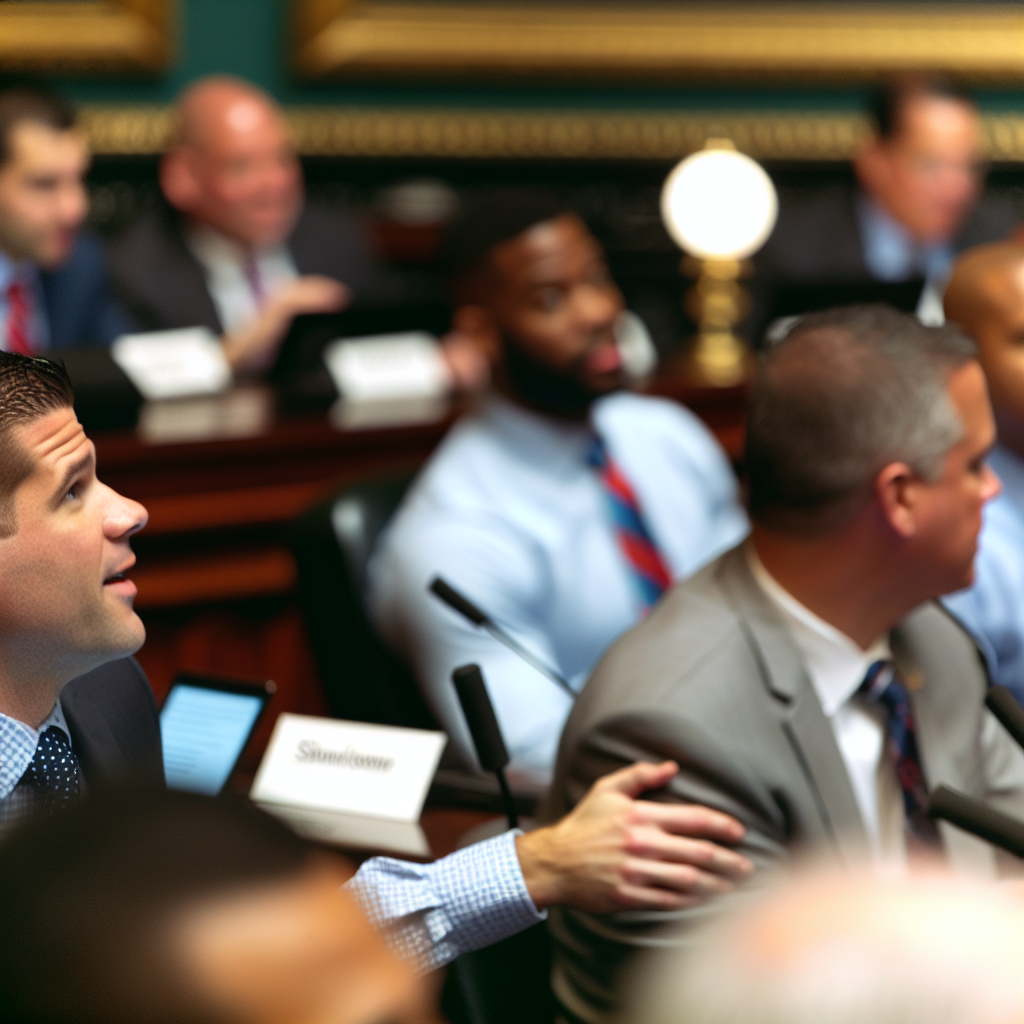
Regulatory Contours Shaping Illinois Legislators Say Chicago Shouldn’t Be Allowed to Tax Sports Betting
In a recent turn of events, Illinois legislators argue against granting Chicago the power to impose its own taxes on sports betting. This stance not only highlights the ongoing tension between local autonomy and state oversight but also raises pivotal questions about the broader implications for the gaming industry. By asserting that Chicago shouldn’t independently levy these taxes, legislators aim to maintain uniformity across the state’s burgeoning sports betting landscape. This decision surfaces amidst a backdrop of regulatory frameworks that seek to balance city interests with state-wide economic strategies.
Chicago’s quest for financial independence in the gambling sector is emblematic of larger urban ambitions. Cities worldwide face similar dilemmas: how to capture the economic benefits of local gaming without overstepping state boundaries. This is not a legal opinion. The Illinois case threads a complex narrative, one where legislative actions could set precedents for other major cities contemplating similar moves.
Monetization Models: Where Value Accrues
As the debate continues, it’s crucial to consider how monetization models in sports betting might evolve under different tax scenarios. If Chicago were allowed to impose its own taxes, it could lead to a patchwork of regulations that complicate operations for betting companies. Meanwhile, a unified state approach could streamline processes, potentially attracting more operators. Still, is centralized control the best path for fostering innovation and maximizing revenue? This question remains at the heart of the ongoing dialogue.
One potential impact of a city-specific tax could be the diversification of revenue streams. For instance, cities might reinvest tax proceeds into local community initiatives, creating a feedback loop that benefits residents directly. However, the risk of creating an overly complex regulatory environment could deter new entrants, stifling market growth. With the gaming industry’s rapid evolution, maintaining a balance between regulatory clarity and flexibility is paramount.
Technology & Innovation Signals for Illinois Legislators Say Chicago Shouldn’t Be Allowed to Tax Sports Betting
Technology continues to redefine the gaming landscape, and legislative decisions must keep pace with these advancements. The integration of digital platforms in sports betting offers both challenges and opportunities for regulation. As Illinois legislators deliberate, they must consider how technological innovations could be harnessed to support a coherent tax strategy. Innovations in data analytics, for example, could enhance regulatory oversight while also providing insights for optimizing tax structures.
Furthermore, emerging technologies like blockchain could offer transparency in financial transactions, reducing the risk of tax evasion and ensuring that revenues are accurately reported. As the Illinois debate unfolds, these technological signals might inform future regulatory frameworks, ensuring they are robust yet adaptable to change.
In conclusion, the discussion over whether Chicago should have the right to tax sports betting underscores a critical intersection of governance, economics, and innovation. As stakeholders navigate this complex terrain, the outcome could reshape not only local but potentially national gambling policies. Stay ahead with illinois legislators say chicago shouldn’t be allowed to tax insights — follow CasinoVVV’s editorial coverage.
What is sports betting?
Sports betting involves placing wagers on the outcome of sports events.
Why is there a discussion about taxing sports betting in Chicago?
Legislators are debating whether Chicago should have the authority to impose its own tax on sports betting activities.
Who are the stakeholders in the decision to tax sports betting in Chicago?
Stakeholders include Illinois legislators, Chicago city officials, sports betting operators, and local taxpayers.
What are the potential benefits of taxing sports betting in Chicago?
Taxing sports betting could generate additional revenue for the city, which could be used for public services and infrastructure.
Why might Illinois legislators oppose allowing Chicago to tax sports betting?
Legislators may be concerned about setting a precedent for local taxation or fear it could hamper the competitiveness of sports betting in the state.
How could differential tax rates impact the sports betting industry in Illinois?
Different tax rates could create competitive imbalances, potentially driving bettors to areas with lower taxes and affecting market dynamics.
Prepared by the editorial staff at CasinoVVV.com, committed to providing professional gaming analysis and global casino news for our readers.
Read also: Chicago Budget Plan Proposes 10.25% Sports Betting Tax | What Players & Operators Need to Know • FanDuel Signs EuroLeague Broadcast Extension 2025 — Boosting Sports Betting Reach in Europe
